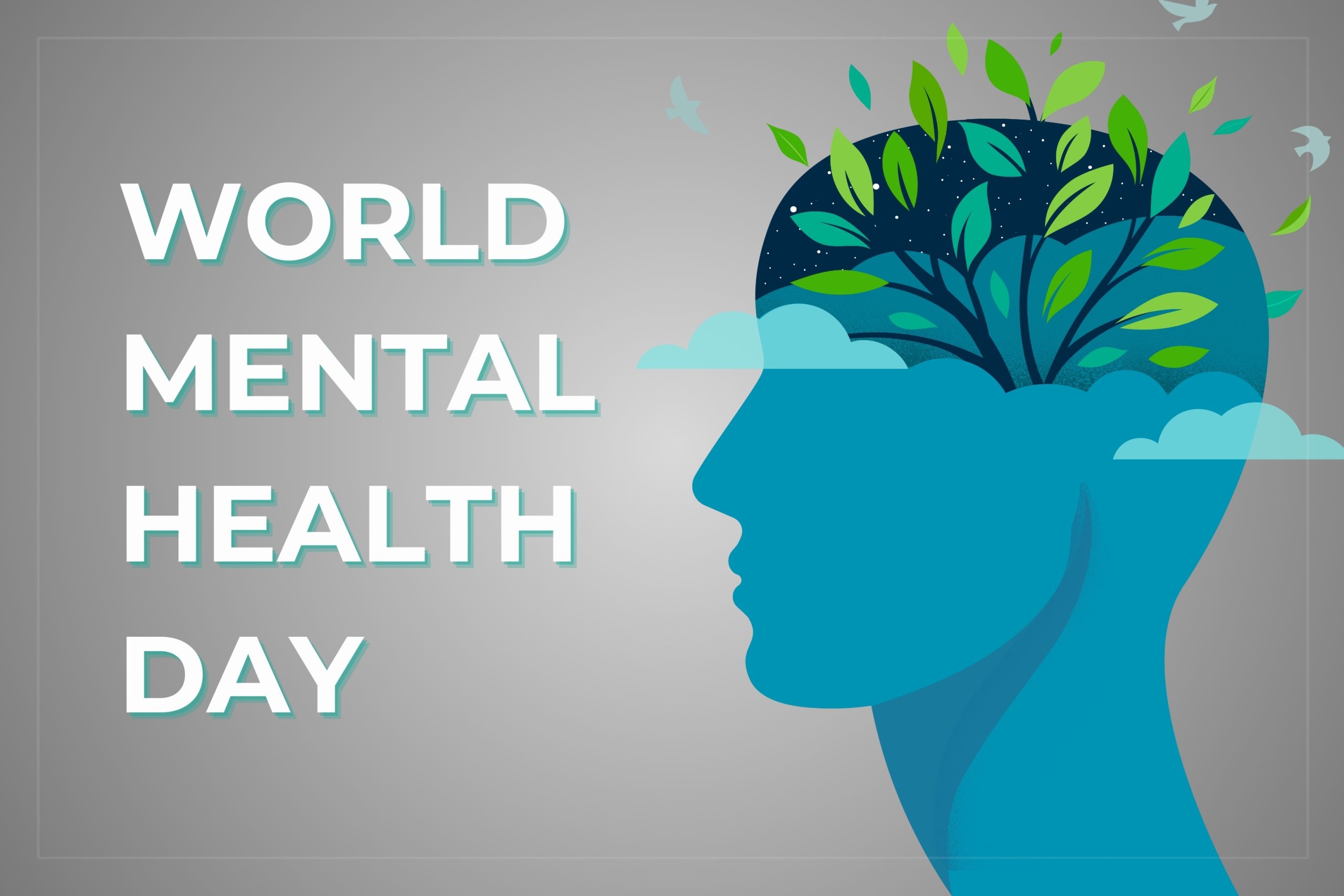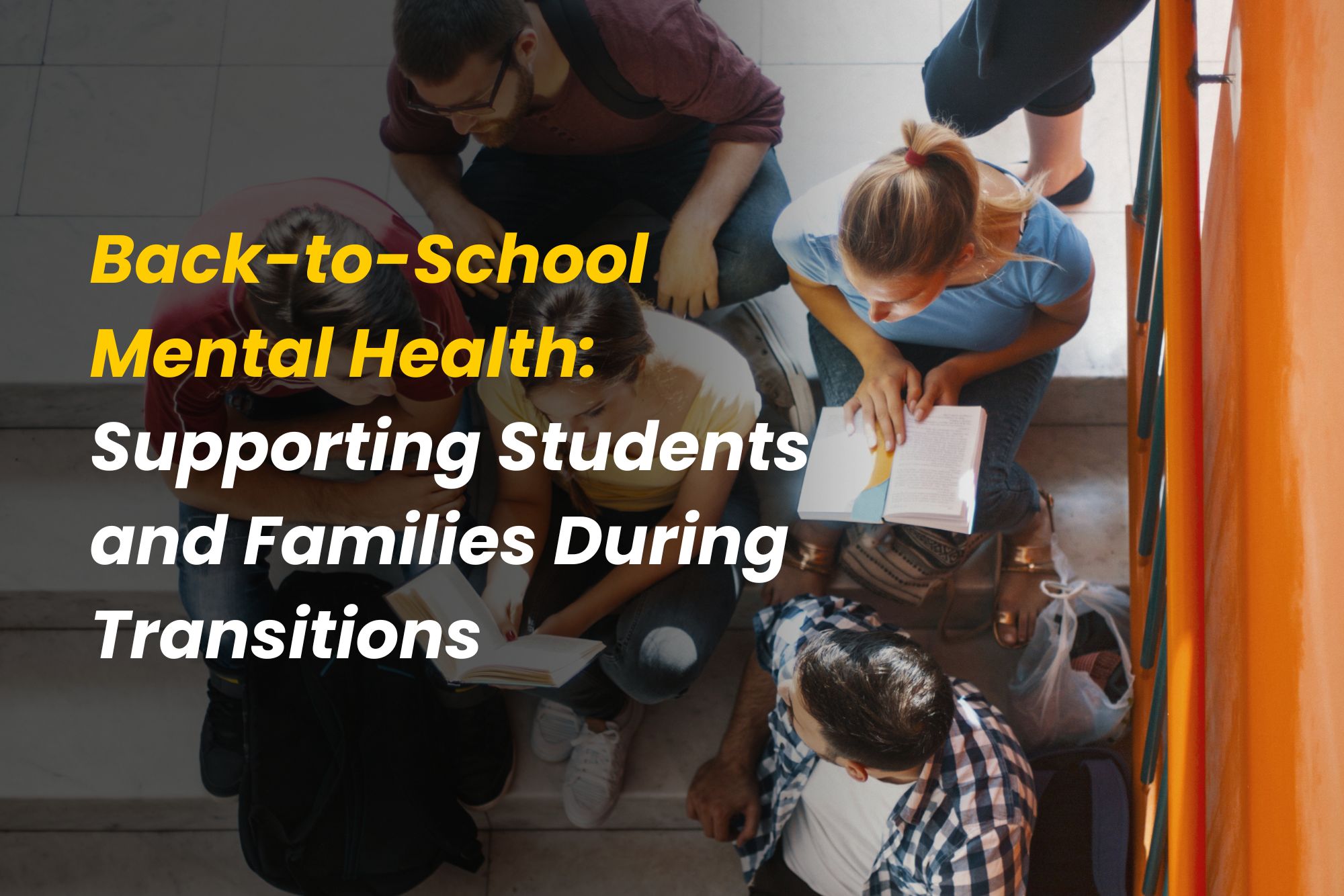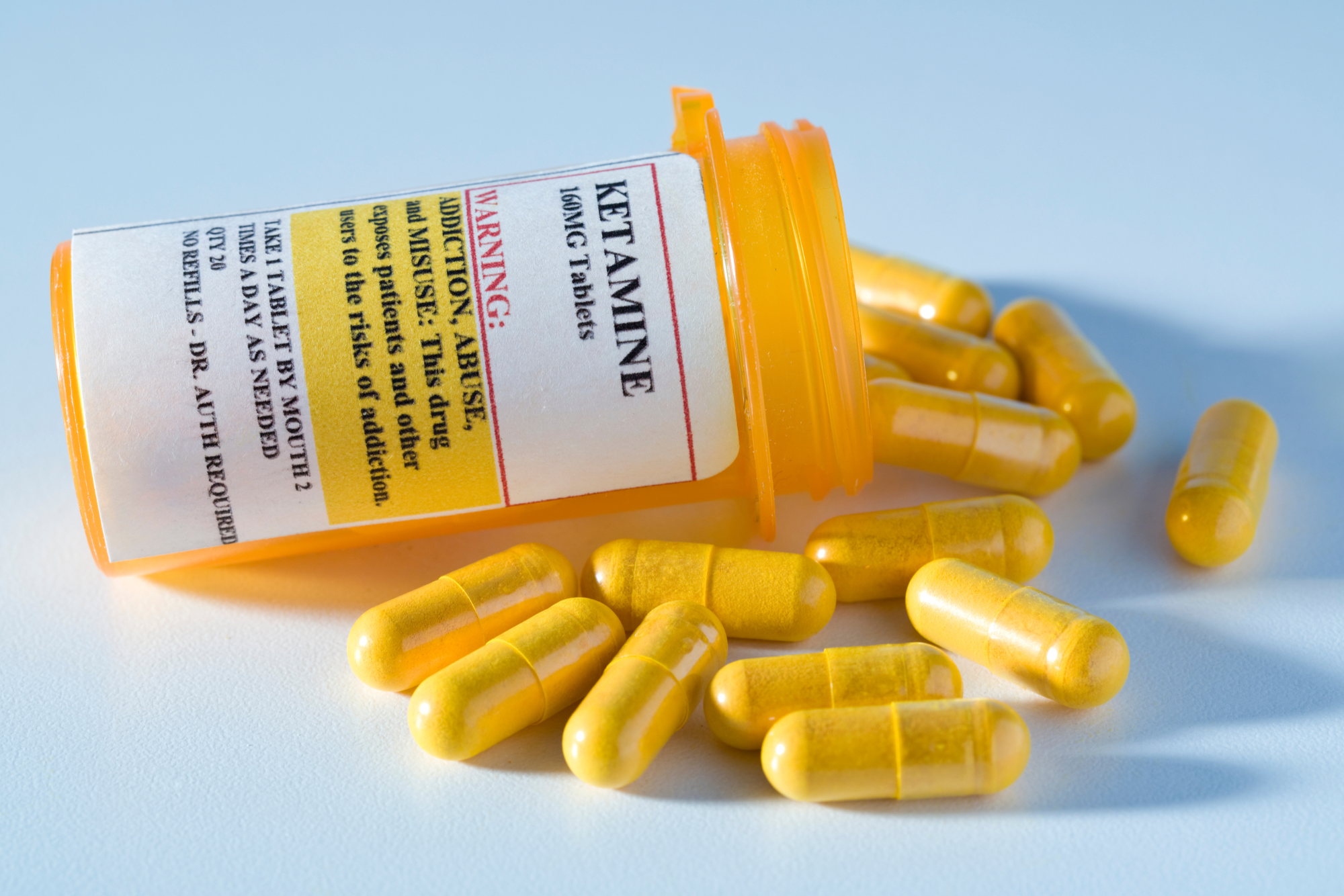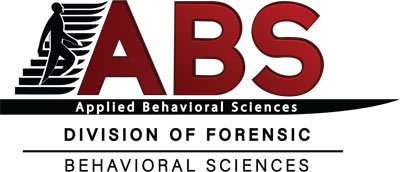
Empowering Women’s Mental Health This International Women’s Day
What if the greatest gift you could give yourself this International Women’s Day wasn’t just flowers or brunch—but real mental freedom and emotional wellness?
As we celebrate International Women’s Day 2025, women everywhere are being recognized for their strength, resilience, and contributions to society. But behind the success, the caregiving, and the leadership roles, there is often silent stress, anxiety, and burnout.
At ABS Behavioral Health, we know that mental health is essential to women’s empowerment. This year’s theme of “Accelerate Action” doesn’t just apply to equality and opportunity—it applies to taking action for your own emotional and psychological well-being.
Why Women’s Mental Health Deserves the Spotlight
Did you know:
- Women are twice as likely to experience anxiety and depression as men.
- Work-life balance stress disproportionately affects women.
- Trauma, abuse, and societal pressures often leave lasting mental health challenges.
Between managing careers, families, relationships, and personal goals, women are navigating high-pressure environments that can take a toll on mental health.
How ABS Behavioral Health Supports Women
At ABS Behavioral Health, we provide expert care designed to address the unique mental health needs of women, including:
✅ Anxiety and Stress Management
✅ Trauma and PTSD Recovery
✅ Depression Support
✅ Work-Life Balance Counseling
✅ Emotional Support Animal (ESA) Evaluations
Whether you’re seeking support to manage career burnout, heal from past trauma, or simply reclaim peace of mind, our licensed mental health professionals are here for you.
How to Celebrate International Women’s Day With Your Mental Health in Mind
Instead of just “celebrating” this year, make a real investment in your wellness:
- Schedule a mental health check-in.
- Set boundaries around work and social commitments.
- Connect with a therapist who understands women’s issues.
- Join a supportive community of women prioritizing emotional wellness.
Take Action for Your Mental Health Today
Let this International Women’s Day be the day you take a bold step towards mental freedom. ABS Behavioral Health is ready to help you every step of the way. Our services are available both in-person and through telehealth, making care accessible wherever you are.
👉 Contact us today to schedule a consultation and give yourself the gift of emotional empowerment. For direct assistance, contact us at 718-871-4593.
Learn More
The Mental Health Impact of Job Displacement in the Age of AI
As artificial intelligence (AI) continues to revolutionize industries, it’s becoming increasingly clear that its rapid advancement poses significant challenges, especially in the realm of employment. While AI offers efficiency, innovation, and new opportunities, it also threatens to displace millions of workers across various sectors. At Applied Behavioral Sciences (ABS), we understand the profound mental health implications of job displacement and are here to provide support and solutions.
The Growing Concern of Job Displacement
According to recent studies, automation and AI could replace up to 20% of jobs globally by 2030. Sectors such as manufacturing, transportation, and even white-collar roles in data processing are especially vulnerable. For affected individuals, the loss of employment often translates to much more than financial instability—it can lead to feelings of worthlessness, anxiety about the future, and even depression.
For many, work isn’t just a source of income but also a cornerstone of identity, social interaction, and purpose. When this foundation is shaken, the emotional and psychological impact can be devastating.
Psychological Responses to Job Displacement
- Anxiety and Uncertainty: The fear of being replaced by a machine or algorithm creates a sense of insecurity, even for those who haven’t yet lost their jobs.
- Depression: Prolonged unemployment or underemployment can lead to hopelessness and low self-esteem.
- Anger and Resentment: Many individuals may feel betrayed by employers or society for prioritizing technology over human contributions.
- Social Isolation: Job loss often disrupts daily routines and social networks, leading to feelings of loneliness.
The Role of ABS in Addressing These Challenges
At ABS Behavioral Health, we specialize in providing comprehensive mental health services that cater to individuals navigating significant life transitions, including job displacement. Here’s how we can help:
- Individual Counseling: Personalized therapy sessions provide a safe space to process emotions, rebuild confidence, and set actionable goals.
- Group Therapy: Sharing experiences with others facing similar challenges fosters community and reduces feelings of isolation.
- Workforce Resilience Workshops: Our workshops equip individuals with skills to adapt to new opportunities, including emotional resilience, stress management, and strategies for upskilling.
- Corporate Collaboration: ABS partners with organizations to create employee assistance programs that address the mental health needs of workers in industries undergoing AI-driven transformations.
Embracing the Future with Resilience
While AI’s impact on the workforce is undeniable, the future doesn’t have to be bleak. With the right mental health support, individuals can transform challenges into opportunities for growth. Reskilling, pursuing new passions, or embracing entrepreneurial ventures are just some of the ways displaced workers can redefine their careers.
At ABS, our mission is to empower individuals to navigate these transitions with strength and optimism. By addressing the mental health impact of job displacement, we aim to foster a society where both technology and humanity thrive in harmony.
How to Get Help
If you or someone you know is struggling with the mental health effects of job displacement, ABS Behavioral Health is here to help. Contact us today to learn more about our tailored programs and services. Together, we can face the challenges of the AI era with resilience and hope. Make an Appointment or call us at 718-871-4593.
Learn More
Beyond the Fire: The Psychological Aftermath of Wildfires
In late November 2024 New York and New Jersey and early January 2025, Los Angeles experienced a series of devastating wildfires, particularly the Palisades and Eaton fires, which began on January 8. As of now, these fires have claimed many lives and caused the destruction of thousands of structures, including homes and vital community infrastructure. The economic damages are reported in the billions.
While the immediate destruction is visible, the psychological impact on those affected by the fires is profound and long-lasting. Survivors often face heightened mental health challenges such as post-traumatic stress disorder (PTSD), anxiety, and depression. The trauma from losing homes, loved ones, and a sense of security can trigger intense emotional distress, leaving people struggling to regain a sense of normalcy.
Applied Behavioral Science (ABS) provides essential frameworks to understand and address these mental health impacts. ABS focuses on identifying and modifying behaviors to create positive change, a crucial approach when dealing with trauma recovery. ABS helps individuals build resilience, cope with anxiety, and develop strategies to navigate their grief.
Effects of natural disasters or crimes like arson on mental health
- Trauma and PTSD: Exposure to the trauma of losing homes or witnessing the destruction of communities can lead to PTSD. Survivors may experience flashbacks, intrusive thoughts, or emotional numbness, which can persist long after the fires have been extinguished.
- Anxiety and Uncertainty: The destruction of homes and the threat of future wildfires create lasting feelings of anxiety. Individuals may struggle with hypervigilance, constantly worrying about the next disaster or the stability of their environment.
- Grief and Loss: The loss of possessions, homes, and sometimes even lives, leads to profound grief. This emotional strain, if not addressed, can lead to depression, isolation, and an overwhelming sense of helplessness.
- Disruption of Routine and Community: Wildfires can displace individuals from their homes, disrupting daily routines and severing vital community connections. Social isolation can exacerbate mental health challenges, leaving survivors without the support they need for recovery.
ABS Approaches to Support Mental Health Recovery
- Community Support: Encouraging open dialogue within communities allows survivors to express their experiences and begin processing trauma. This emotional exchange can reduce isolation and foster healing.
- Cognitive Behavioral Therapy (CBT): CBT, an evidence-based therapeutic approach, helps individuals address negative thought patterns and build healthy coping strategies. It is particularly effective for managing trauma-related symptoms and anxiety.
- Resilience Training: Interventions focused on resilience and stress management can mitigate the long-term mental health effects of wildfires. Behavioral strategies that emphasize mindfulness, self-care, and adaptive thinking can help individuals regain control over their mental well-being.
- Access to Mental Health Resources: Ensuring survivors have access to mental health services is essential. Local support groups, counseling, and crisis helplines can provide immediate relief to those affected by the trauma of the wildfires.
While the physical toll of the recent wildfires in Los Angeles is evident, the unseen mental health impact is equally significant. As the situation continues to evolve, mental health professionals are essential in supporting recovery efforts. Through the application of Applied Behavioral Science, we can guide individuals and communities toward healing, helping them rebuild not just their homes but also their emotional resilience.
Learn More
Cherishing the Moments: Nurturing Mental Health Through Holiday Traditions
The holiday season is a time of joy, togetherness, and cherished traditions. It’s a time to celebrate with loved ones, reflect on the year, and create lasting memories. Yet, amidst the festivities, the season can also bring stress, overwhelm, and emotional challenges. Balancing responsibilities, managing expectations, and dealing with seasonal pressures can take a toll on mental health.
At ABS Behavioral Health, we believe the holiday season offers a unique opportunity to focus on nurturing your mental well-being while strengthening connections with those around you. By embracing mindful traditions and prioritizing self-care, you can make this season truly fulfilling.
The Power of Traditions
Holiday traditions, whether big or small, have the power to ground us and bring comfort. Familiar rituals like decorating the tree, baking cookies, or lighting candles can evoke a sense of nostalgia and belonging. These activities provide continuity, connecting us to past generations and reinforcing bonds with family and friends.
Take time this season to revisit the traditions that bring you joy. Whether it’s watching your favorite holiday movies or volunteering in your community, these moments can offer a sense of stability and purpose during a busy season.
Creating Space for Mindfulness
Amid the hustle and bustle, it’s essential to pause and be present in the moment. Mindfulness can transform ordinary holiday activities into meaningful experiences. For instance, while wrapping gifts, focus on the joy the recipient will feel. When preparing meals, savor the smells, tastes, and textures.
Mindfulness practices such as deep breathing, meditation, or simply taking a quiet moment with a cup of tea can help reduce stress and bring clarity. By being fully present, you can enjoy the season more deeply and find peace amidst the chaos.
Managing Holiday Stress
It’s easy to feel overwhelmed by the demands of the season—shopping, hosting, traveling, and meeting expectations. Setting boundaries and managing your time effectively can help you avoid burnout. Remember, it’s okay to say no to activities or gatherings that feel overwhelming.
Plan ahead, delegate tasks, and focus on what truly matters to you. Instead of striving for perfection, aim for connection. Authentic moments with loved ones are far more valuable than a picture-perfect holiday.
Supporting Others and Asking for Support
The holidays can be a difficult time for those experiencing grief, loneliness, or other challenges. Reach out to friends or family members who may be struggling and offer a listening ear or a warm gesture. Sometimes, the greatest gift is simply being present for someone in need.
If you find yourself feeling overwhelmed, don’t hesitate to seek support. Whether it’s talking to a trusted friend, family member, or a professional, sharing your feelings can help lighten the load. ABS Behavioral Health is here to provide guidance and resources to help you navigate emotional challenges.
Embracing New Traditions
Every family evolves, and with time, traditions may change. Be open to creating new rituals that reflect your current circumstances and priorities. Whether it’s a virtual gathering with distant relatives, a nature walk instead of a big meal, or writing gratitude notes to loved ones, these new practices can bring fresh joy and meaning to the season.
Closing Thoughts
The holidays are not about perfection but about presence. By cherishing the small moments, embracing traditions, and prioritizing mental health, you can create a season filled with connection, gratitude, and peace.
From all of us at ABS Behavioral Health, we wish you a holiday season filled with warmth, love, and well-being. If you or someone you know needs support, we are here to help. Reach out to us and take the first step toward a healthier, happier holiday.
Learn More
Celebrating Thanksgiving: A Time to Reflect on Gratitude and Mental Health
As families across the United States gather to celebrate Thanksgiving, we at ABS Behavioral Health want to take a moment to reflect on the profound connection between gratitude and mental well-being. While this holiday is known for its hearty meals and time with loved ones, it’s also an opportunity to pause, practice mindfulness, and focus on the emotional benefits of giving thanks.
The Mental Health Benefits of Gratitude
Gratitude isn’t just a fleeting feeling—it’s a powerful tool for mental health. Studies show that practicing gratitude can:
- Reduce Stress: Taking time to appreciate the positive aspects of your life lowers cortisol levels, helping to manage stress effectively.
- Enhance Emotional Resilience: Grateful individuals often find it easier to bounce back from challenges and setbacks.
- Strengthen Relationships: Expressing gratitude fosters connection and strengthens bonds with family, friends, and colleagues.
- Improve Overall Happiness: Regular gratitude practice is linked to increased levels of dopamine and serotonin, the “feel-good” chemicals in the brain.
Gratitude in Action: Practical Tips
This Thanksgiving, consider incorporating these gratitude practices into your celebration to boost mental wellness:
- Keep a Gratitude Journal: Encourage everyone at the table to write down three things they’re thankful for. Reflecting on these moments promotes positive emotions.
- Share Words of Affirmation: Before diving into the feast, take turns sharing what you appreciate about one another.
- Give Back: Volunteer as a family or contribute to a cause you care about. Helping others is a powerful way to cultivate gratitude and purpose.
- Practice Mindful Eating: As you enjoy your meal, savor each bite and express gratitude for the hands that prepared it.
How ABS Supports Mental Health During the Holidays
For many, Thanksgiving is a joyful time, but it can also bring stress, anxiety, or feelings of loneliness. The pressure to create a “perfect” holiday or navigate family dynamics can take a toll on mental health.
At ABS Behavioral Health, we understand the complexities of the holiday season. Our programs are designed to support individuals and families facing mental health challenges, providing tools to manage stress, improve communication, and foster emotional resilience. Whether through individual counseling, group therapy, or corporate wellness initiatives, we’re here to help you thrive.
Finding Gratitude in the Everyday
Thanksgiving reminds us of the importance of gratitude, but it’s a practice that can—and should—extend beyond the holiday. By integrating small moments of thankfulness into your daily routine, you can enhance your overall mental health and foster a more positive outlook on life.
From all of us at ABS Behavioral Health, we wish you a Thanksgiving filled with warmth, connection, and peace. Let’s celebrate not just today but every day with hearts full of gratitude.
If you or someone you know could benefit from mental health support, please don’t hesitate to reach out to ABS Behavioral Health. Together, we can work toward a healthier, happier future.
Learn More
Celebrating Veterans Day: Honoring Service and Don’t Neglect Their Mental Health
Today, on Veterans Day, we honor the bravery, dedication, and sacrifice of the men and women who have served in the United States Armed Forces. Their unwavering commitment to protecting our country and its values deserves our utmost respect, gratitude, and support—not just today, but every day. At ABS Mental Health and Behavioral Health, we recognize the immense contributions veterans make to society and the importance of addressing their mental health as they transition back to civilian life.
Military service, while rewarding, often exposes veterans to significant mental and emotional challenges, including prolonged separations from loved ones, high-stress environments, and, in some cases, combat experiences. These situations can lead to unique mental health concerns such as post-traumatic stress disorder (PTSD), depression, and anxiety. Addressing these needs is essential to ensuring veterans can lead fulfilling lives, maintain strong relationships, and successfully reintegrate into their communities.
At ABS, we believe in fostering a community that values the mental health of all individuals, especially those who have given so much in service to our nation. Supporting veterans in prioritizing their mental well-being can empower them to navigate life’s challenges and reinforces the resilience they demonstrated during their service.
This Veterans Day, let us all pledge to build a society that honors and supports our veterans by promoting their mental health as a crucial part of appreciating their service. We thank our veterans for their selflessness and stand with them, committed to advocating for their well-being every step of the way.
For more information on mental health support services, visit our website at ABS Mental Health. Together, we can make a positive difference in the lives of those who have sacrificed so much for our freedoms.
Learn More
Prioritizing Mental Health: Celebrating World Mental Health Day with ABS Behavioral Health
In today’s fast-paced world, prioritizing mental health is more important than ever. As we face increasing challenges in our personal and professional lives, stress, anxiety, and other mental health issues can easily take a toll on our well-being. At ABS Behavioral Health, we are committed to helping individuals navigate these challenges through tailored mental health services that promote healing, growth, and long-term wellness.
World Mental Health Day serves as a reminder that mental health is just as critical as physical health. It is a day to break down the stigma surrounding mental illness and encourage open conversations about emotional well-being. Many people still feel hesitant to seek help or discuss their struggles, but there is no shame in seeking support. In fact, doing so is a courageous step towards self-care and holistic health.
At ABS Behavioral Health, we believe in a proactive approach to mental health. This means addressing issues early on, before they become overwhelming. Our experienced professionals provide a wide range of services, from counseling and therapy to educational programs, all designed to empower individuals to take control of their mental health. Whether you’re dealing with anxiety, depression, trauma, or other life challenges, our team is here to offer compassionate, evidence-based care that meets your unique needs.
By prioritizing mental health, we create a ripple effect of positive outcomes—improving relationships, increasing productivity, and enhancing overall quality of life. If you or someone you know is struggling, don’t hesitate to reach out for help. Investing in mental health is an investment in a brighter, more fulfilling future.
This World Mental Health Day, let’s come together to prioritize our well-being, support one another, and continue the important conversation about mental health. Visit our website ABS Behavioral Health to learn more about our services and how we can assist you on your journey to mental wellness.
Schedule your appointment today with ABS Behavioral Health and start your journey to lasting recovery. Click here to make your appointment: Make an Appointment or call us at 718-871-4593
Learn More
Back-to-School Mental Health: Supporting Students and Families During Transitions
Introduction
As August rolls in, families across the country prepare for the back-to-school season. This time of year often brings a mix of excitement and anxiety for students and parents alike. While the start of a new school year can be an opportunity for growth and learning, it can also present significant mental health challenges. Students may face academic pressures, social anxiety, or the stress of adapting to a new environment. For parents, the shift in routine and the concern for their children’s well-being can also be overwhelming.
Understanding the Challenges
- Academic Pressure: With a new school year comes new classes, assignments, and sometimes, increased academic expectations. Students might feel pressure to perform well, leading to anxiety and stress. It’s crucial to acknowledge that these feelings are normal and provide strategies to cope.
- Social Dynamics: Whether transitioning to a new school or advancing to a new grade level, students often face the challenge of navigating new social environments. Making new friends, dealing with peer pressure, or adjusting to changes in their social circles can be daunting.
- Routine Changes: Both students and parents have to adjust to new routines that can disrupt the balance they’ve maintained over the summer. This can lead to stress, sleep disturbances, and overall anxiety.
Supporting Students’ Mental Health
- Open Communication: Encourage open lines of communication between parents, teachers, and students. Creating a safe space for students to express their feelings about the upcoming school year can alleviate some of their anxiety. Parents can start conversations by asking open-ended questions like, “How are you feeling about going back to school?”
- Setting Realistic Expectations: It’s important to set realistic academic and social expectations for students. Encouraging effort and progress rather than perfection can reduce the pressure they feel. Remind students that it’s okay to make mistakes and that learning is a process.
- Promoting Healthy Routines: Establishing a consistent routine helps students feel more secure and manage their time effectively. Encourage regular sleep schedules, healthy eating, and time management practices to balance schoolwork with leisure activities.
- Encouraging Social Connections: Help students build and maintain positive relationships with peers. This might involve joining clubs, participating in sports, or simply encouraging them to reach out to friends.
- Mindfulness and Relaxation Techniques: Introduce mindfulness practices, such as deep breathing exercises or meditation, to help students manage anxiety and maintain focus. These practices can be easily integrated into their daily routine, providing them with tools to manage stress effectively.
Supporting Parents’ Mental Health
- Self-Care for Parents: Remind parents that taking care of their own mental health is crucial in supporting their children. Encourage them to engage in self-care practices, such as regular exercise, hobbies, and maintaining social connections.
- Educating on Signs of Distress: Parents should be aware of signs of distress in their children, such as changes in behavior, sleep patterns, or appetite. Understanding these signs can help parents intervene early and seek appropriate support.
- Building a Support Network: Encourage parents to connect with other parents or join support groups. Sharing experiences and solutions can provide reassurance and practical advice.
Professional Support and Resources
- School Counselors and Behavioral Health Professionals: Encourage families to utilize resources like school counselors, who can provide additional support for students facing challenges. Behavioral health professionals can offer therapeutic strategies tailored to individual needs.
- Community Resources: Many communities offer programs and workshops on mental health, stress management, and parenting strategies. These resources can provide valuable support during the back-to-school transition.
Conclusion
The back-to-school season is a time of change and adaptation for both students and parents. By acknowledging the mental health challenges associated with this transition and proactively seeking support and strategies, families can navigate this period more smoothly. Remember, maintaining open communication, setting realistic expectations, and utilizing available resources can significantly impact overall well-being during this time.
At ABS Behavioral Health, we are here to support families through these transitions with professional guidance and tailored programs. Our experts are dedicated to helping students and parents manage stress, build resilience, and achieve a healthy balance during the school year. Reach out to us for more information on how we can help you and your family thrive.
Schedule your appointment today with ABS Behavioral Health and start your journey to lasting recovery. Click here to make your appointment: Make an Appointment or call us at 718-871-4593

5 Essential Tips for Anger Management
Introduction
Anger is a powerful emotion that can sometimes feel like a wild beast inside us. Left unmanaged, it can strain relationships, impact our health, and disrupt our peace of mind. But fear not! With the right strategies, you can tame this beast and regain control. Here are five essential tips to help you manage your anger effectively, and a special recommendation for those seeking additional support.
Tip 1: Identify Your Triggers
The first step in managing anger is understanding what triggers it. Keep a journal to note down instances when you feel angry. Identify patterns—are there specific situations, people, or times of day that provoke your anger? Once you know your triggers, you can take steps to avoid or prepare for them.
Tip 2: Practice Deep Breathing
When anger strikes, your body’s fight-or-flight response kicks in. Counteract this by practicing deep breathing exercises. Inhale deeply through your nose, hold for a few seconds, and then exhale slowly through your mouth. This simple technique helps calm your nervous system and gives you a moment to think before reacting.
Tip 3: Engage in Physical Activity
Physical activity is a natural way to relieve stress and reduce anger. Exercise releases endorphins, which improve your mood and help you relax. Whether it’s a brisk walk, a yoga session, or a vigorous workout, find an activity that you enjoy and make it a regular part of your routine.
Tip 4: Use “I” Statements
Effective communication is key to managing anger. Instead of accusing or blaming others, use “I” statements to express how you feel. For example, say “I feel frustrated when…” rather than “You always…”. This approach reduces defensiveness and fosters constructive dialogue.
Tip 5: Practice Mindfulness
Mindfulness involves staying present and fully engaging with the current moment. When you feel anger building, take a moment to focus on your breathing, sensations, and surroundings. This practice can help you stay grounded and prevent your emotions from taking over.
ABS Behavioral Health Program
If you find that your anger is overwhelming or difficult to manage on your own, seeking professional help is a wise decision. ABS Behavioral Health offers comprehensive programs tailored to individuals struggling with anger management. Their experienced therapists provide personalized strategies and support to help you regain control of your emotions and lead a healthier, more balanced life.
Conclusion
Managing anger is a journey that requires patience and practice. By identifying your triggers, practicing deep breathing, staying active, communicating effectively, and embracing mindfulness, you can take significant steps toward taming your anger. And remember, if you need additional support, ABS Behavioral Health is here to help. Take the first step today towards a calmer, more peaceful you. Make an Appointment or call us at 718-871-4593.
Learn More
From Painkiller to Addiction: Navigating Ketamine Recovery
The Impact of Ketamine Addiction
Ketamine, initially celebrated for its efficacy as a painkiller and anesthetic, has evolved into a troubling issue of addiction. Since its FDA approval in 1970, ketamine has been widely used in medical and veterinary practices. However, its dissociative and hallucinogenic properties soon made it attractive for recreational use, earning it the street name “Special K.” Despite its medical origins, ketamine’s addictive potential became increasingly evident as recreational use surged, particularly among young adults.
Challenges in Ketamine Recovery
Recovering from ketamine addiction presents numerous challenges. Beyond its physical effects, such as ketamine bladder syndrome and cognitive impairments, addiction to this drug deeply affects mental health, often leading to anxiety, depression, and dissociative disorders. Withdrawal from ketamine can be intense, marked by cravings and psychological distress, necessitating comprehensive support systems for successful recovery.
Navigating the Path to Recovery
Effective treatment for ketamine addiction integrates various approaches. Medical detoxification addresses the physical dependence, while therapies like Cognitive Behavioral Therapy (CBT) help individuals understand their addiction triggers and develop coping strategies. Group therapy, facilitated by Applied Behavioral Sciences (ABS) professionals, provides a crucial support network. In these sessions, participants share experiences, receive mutual encouragement, and learn valuable techniques like behavior modification and positive reinforcement to maintain sobriety.
Conclusion
Ketamine’s journey from painkiller to addictive substance underscores the importance of holistic treatment approaches. Awareness of its addictive potential and the complexities of recovery is essential. By combining medical interventions with psychological support and ABS techniques in group therapy, individuals can navigate the challenges of ketamine addiction, reclaim their lives, and achieve lasting sobriety. Through education, support, and comprehensive treatment strategies, we can empower individuals to break free from ketamine addiction and build healthier futures.
Ready to take the first step towards recovery from ketamine addiction? Schedule your appointment today with ABS Behavioral Health and start your journey to lasting recovery. Click here to make your appointment: Make an Appointment
Learn More